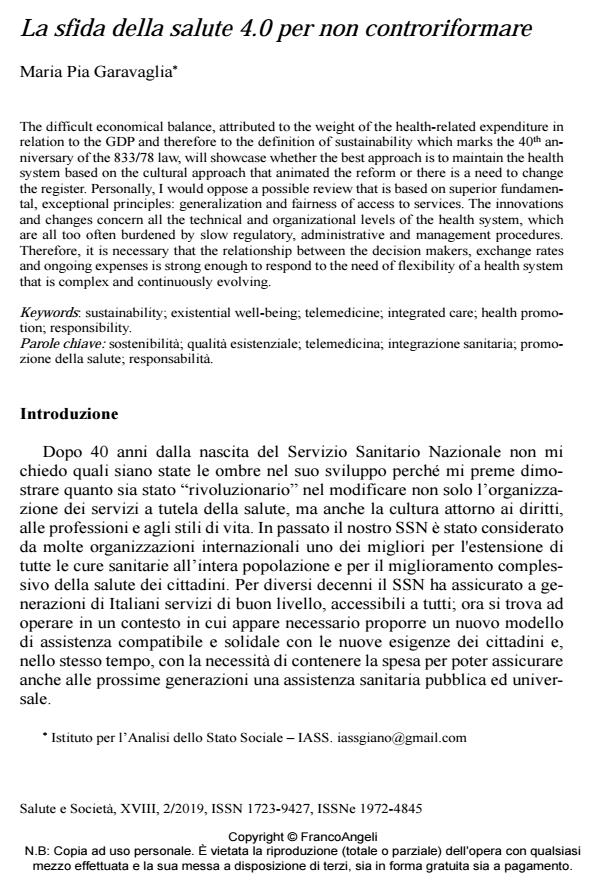La sfida della salute 4.0 per non controriformare
Titolo Rivista SALUTE E SOCIETÀ
Autori/Curatori Maria Pia Garavaglia
Anno di pubblicazione 2019 Fascicolo 2019/2
Lingua Italiano Numero pagine 11 P. 57-67 Dimensione file 156 KB
DOI 10.3280/SES2019-002006
Il DOI è il codice a barre della proprietà intellettuale: per saperne di più
clicca qui
Qui sotto puoi vedere in anteprima la prima pagina di questo articolo.
Se questo articolo ti interessa, lo puoi acquistare (e scaricare in formato pdf) seguendo le facili indicazioni per acquistare il download credit. Acquista Download Credits per scaricare questo Articolo in formato PDF

FrancoAngeli è membro della Publishers International Linking Association, Inc (PILA), associazione indipendente e non profit per facilitare (attraverso i servizi tecnologici implementati da CrossRef.org) l’accesso degli studiosi ai contenuti digitali nelle pubblicazioni professionali e scientifiche.
The difficult economical balance, attributed to the weight of the health-related expenditure in relation to the GDP and therefore to the definition of sustainability which marks the 40th anni-versary of the 833/78 law, will showcase whether the best approach is to maintain the health system based on the cultural approach that animated the reform or there is a need to change the register. Personally, I would oppose a possible review that is based on superior fundamental, exceptional principles: generalization and fairness of access to services. The innovations and changes concern all the technical and organizational levels of the health system, which are all too often burdened by slow regulatory, administrative and management procedures. Therefore, it is necessary that the relationship between the decision makers, exchange rates and ongoing expenses is strong enough to respond to the need of flexibility of a health system that is com-plex and continuously evolving.
Parole chiave:Sostenibilità; qualità esistenziale; telemedicina; integrazione sanitaria; promo-zione della salute; responsabilità.
Maria Pia Garavaglia, La sfida della salute 4.0 per non controriformare in "SALUTE E SOCIETÀ" 2/2019, pp 57-67, DOI: 10.3280/SES2019-002006